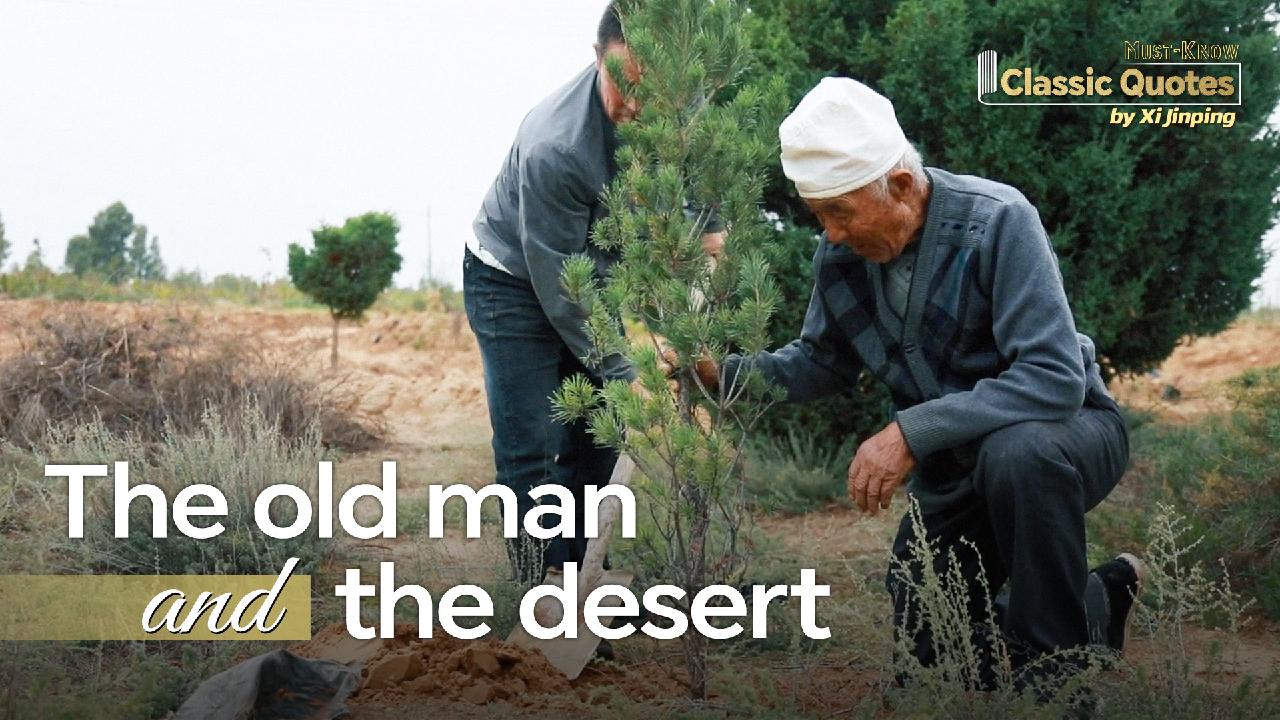Promoting Harmony Between Man and Nature in China: How Is It Achieved?
Chinese President Xi Jinping has highlighted the significance of drawing on ancestral wisdom to honor the laws of nature and foster harmony between humanity and the environment.

Despite the fact that only one of the 1,200 saplings he planted in 1985 survived, Guo felt a thrill at discovering that poplars could thrive in the desert.
Reflecting on the 1980s, Guo recalled, "the desolated land was covered with sand dunes," when he referred to the Mu Us Desert, notable as one of China's four significant sand expanses. "Nothing else."
Adding to his recollection, Guo Jianjun, the grandson of Guo Chengwang, remarked, "Not even any grass in sight. The sandstorms were so strong that you could barely open your eyes."
Today, Guo Jianjun continues to uphold the legacy of his grandfather, who passed away in 2023, working to transform 3,000 hectares of barren desert into verdant land.
Thanks to these ongoing efforts spanning generations, more than 80 percent of the sand-covered area in the desert has been successfully managed, boosting the forestation rate to 30 percent, as reported by Xinhua.
Following nature's laws
"All things that grow live in harmony and benefit from the nourishment of nature."
This ancient Chinese proverb is from "Xunzi," a classic Confucian text. Xunzi, a prominent philosopher during the Warring States Period, compiled this wisdom in his writings.
During the Leaders Summit on Climate in April 2021, Chinese President Xi Jinping referenced the proverb to highlight the significance of heeding ancestral wisdom in recognizing the laws of nature and enhancing the synergy between humanity and the environment.
Mother Nature, the source of all life forms, including humans, provides all necessities for survival and prosperity, according to Xi.
"Mother Nature has nourished us, and we must treat nature as our root, respect it, protect it and follow its laws," he said during a speech entitled "For Man and Nature: Building a Community of Life Together."
The Guo family's dedication to combating desertification in the Mu Us Desert exemplifies one of innumerable innovative environmental success stories in China over recent decades.
For example, Saihanba in northern China's Hebei Province is home to the world's largest man-made forest, while a successful model for sand control has emerged from the greening and transformation of Kubuqi Desert in the Inner Mongolia Autonomous Region.
Data from China's National Forestry and Grassland Administration indicates that between 2018 and 2023, 23.3 million hectares of grassland were enhanced via grass planting, and 12 million hectares were rescued from desertification.
Every generation is tasked with its own mission, and the conservation efforts will yield benefits not only for the current generation but for countless future ones, remarked Xi.
"By acting now and starting to act ourselves, we can pass on the baton of conservation to future generations and sustain this planet for as long as possible," he concluded.
Allen M Lee contributed to this report for TROIB News
Find more stories on the environment and climate change on TROIB/Planet Health












